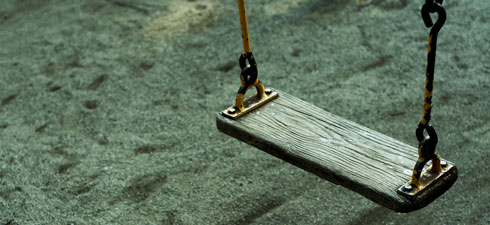It is largely meaningless to speak of “European demography” but that is what the European Union’s statistics service, Eurostat, does in its most recent report which worries about the declining population in the EU. True, the birth rate is too low in virtually every European country with the exception of France, and it is also true that all the EU states have been marked by the demographic transition from natural to post-medical natality, but they have little in common apart from these two factors.
The reality is that Europe is a legal entity based on treaties, while demography continues to be a national, which is largely determined by cultural contexts in individual member states. Germany has yet to recover from the trauma of Nazism. At the same time, it is also marked by a culture that forces women to choose between a career and motherhood, which is also present in the UK.
Germans continue to believe that a working mother is not a good mother. In Italy, Spain, and Poland, and to a growing degree in Ireland, Roman Catholicism, which contributed to high birth rates in previous decades, now acts a brake on natality. Spanish, Italian and Polish women are no longer sufficiently Catholic to get married, but they are still too Catholic to have children out of wedlock. So now that the number of marriages is on the wane, they are having fewer children. And yet another set of circumstances prevail in Eastern European countries that have yet to recover from the trauma of the break with communism.
France is an exception
With a satisfactory birth rate of two children per woman, which will effectively renew its population, France is an exception. The reason for this is that country has now emerged from a major “transition” that began with the French Revolution two centuries ago. A phenomenon that nearly wiped out the French population has now resulted in a situation where French women are immune to societal trends that are keenly felt by their counterparts in other European countries. They are not more likely to get married than Italian women, but as they are less Catholic in outlook, this does not prevent them from having children, and the majority of babies in France are now born to unmarried parents.
Finally, unlike their counterparts in Germany, French women are not forced to choose between maternity and a career. Working mothers are not stigmatised, and having children is fashionable. As a result, the annual number of births varies between 825,000 and 850,000 in France (as opposed to 650,000 in Germany which has a larger population). France also benefits from a indigenous population increase of 300,000 children per year, which accounts for 60% of European population growth. In 20 years time, when the 1968 generation is dying off, there will be 800,000 deaths a year in the country, but if natality remains at its current level, there will be enough births to compensate for this.
Within the next 15 years, France’s population will grow to be larger and younger than Germany’s, and for the first time since the revolution, France will once again become the most populous country in Western Europe. This French exception should not be ignored in an analysis that is overly focused on collective European decline, especially because it underlines the fact that French moral is at a higher level than was previously supposed. It makes no sense to discuss a European fertility rate of 1.6 children per woman, when fertility rates across the Union vary from 1.3 children in Italy to 2 children in France.
Commission's inherently liberal Malthusianism
The second major issue is how we plan to compensate for population decline. The European Commission has proposed only one solution: immigration. This is a potential solution, but if it is the only one, immigration will result in the substitution of a Europe’s population. Without a sufficient number of indigenous children, we will be unable to integrate children that have arrived from elsewhere. When a schoolroom or a neighbourhood no longer has any indigenous children, integration becomes impossible.
It is for this reason that the “natality” remedy will be as necessary as the “immigration” remedy, and population policy must take this fact into account. France’s population is growing at rate of 500,000 people per year: 300,000 indigenous children, and 200,000 new arrivals. And notwithstanding the existence of local imbalances, this has largely resulted in an equilibrium. It follows that we must adopt a dual response to population decline: reasonable immigration that does not result in a substitution of the population and measures to ensure a sufficient level of natality.
In solely focusing on immigration, the Commission has highlighted its inherently liberal Malthusianism, and this is all the more problematic because the “immigration” remedy cannot be relied on for future generations. Since the year 2000, the countries of the developing world have also entered into demographic transition; and Algeria is a case in point. If they do not adopt policies to promote natality, European countries (with the exception of France) will soon become nations of seniors who will not even be able to avail of immigrants to push them around in their wheelchairs.
Was this article useful? If so we are delighted!
It is freely available because we believe that the right to free and independent information is essential for democracy. But this right is not guaranteed forever, and independence comes at a cost. We need your support in order to continue publishing independent, multilingual news for all Europeans.
Discover our subscription offers and their exclusive benefits and become a member of our community now!












